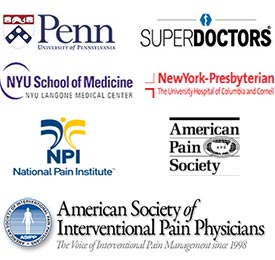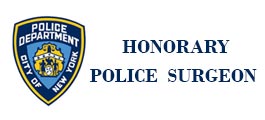Best Frozen Shoulder Diagnosis & Pain Management Doctors NYC
At Manhattan Pain and Sports Associates you’ll get the frozen shoulder diagnosis, pain management, and medical care you need to reduce or eliminate your frozen shoulder pain. Because when you’re in pain — whether it’s from an accident, age, sporting incident, or ailment — you want pain relief quickly. Appropriate and targeted frozen shoulder pain management and treatment starts with a proper diagnosis from your NYC pain management specialist doctor.
Frozen shoulder is a fairly common and tends to occur for no rhyme or reason. It isn’t directly related to any kind of repetitive motion or dominating arm use. It affects women slightly more often than men. The condition is characterized by:
- First a dull ache in your shoulder
- Worsening pain when you move your arm
- Difficulty moving your arm without assistance
If these symptoms sound familiar, contact your pain management specialist. Frozen shoulder gets worse if left untreated, passing through three stages:
- Freezing: This is the time you first begin to notice increasing pain. This period can last up to nine months, getting progressively worse.
- Frozen: Your regular range of motion is severely limited during this stage, which can last for another six months.
- Thawing: During this time, which can last anywhere from six months to two years, your shoulder slowly recovers. Your shoulder returns to normal range of motion with little or no pain.
Shoulder Basics
When frozen shoulder occurs the connective tissue that holds your arm in your shoulder socket tightens and thickens, making it difficult to move your arm. At the same time, there’s less lubricating fluid present, resulting in adhesions.
A few theories suggest possible connections as to what may lead to frozen shoulder symptoms:
- After a procedure that immobilized your shoulder for any length of time, you could develop thickening tissues and frozen shoulder. Physical therapists insist on movement shortly after a procedure to prevent symptoms like frozen shoulder.
- Some diseases seem to be closely associated with frozen shoulder, including Parkinson’s, hyperthyroidism and cardiac disease.
- Diabetes also may be a precursor to frozen shoulder, but medical research cannot explain why, only that about 10 to 20 percent of the people with frozen also have diabetes.
Help from Manhattan Pain and Sports Associates
Your doctor can determine very quickly the level of frozen shoulder you’re enduring. Often both passive and active movement of your arm is affected. With frozen shoulder, you can’t move your arm very far — with or without assistance. An MRI can rule out other possible reasons for the stiffness, such as a torn rotator cuff.
You have good odds for recovering quickly and completely with simple, non-invasive treatments from a trained pain management specialist. An average of 90 percent of people with frozen shoulder recover nicely with these treatments:
- Cortisone injections directly into your shoulder to dramatically reduce the inflammation.
- Anti-inflammatory and non-steroidal medications such as ibuprofen and aspirin also reduce swelling to give your should a chance to heal.
- Specific exercises aimed at improving your range of motion. Applying heat before these exercises reduces the discomfort too.
Surgery may be required if you don’t respond to conservative treatment. A Manhattan pain management doctor may opt to use general anesthesia and manually manipulate the soft tissue, breaking up the tightening bands. You doctor can perform a shoulder arthroscopy, during which your surgeon cuts portions of the tightened tissue, in conjunction with the manipulation. Then it’s back to physical therapy for what most likely will be a positive recovery period.
Get the Relief You Need For Your Frozen Shoulder
Your NYC frozen shoulder pain management doctor’s goal is to get you back to your normal routine with minimal downtime. After your frozen shoulder diagnosis is confirmed, your doctor begins your frozen shoulder pain management and treatment plan with the most conservative pain relief treatment. You’ll always receive non-invasive pain relief before your doctor turns to more invasive procedures like surgery.
Manhattan Pain and Sports Associates
51 East 25th St, 4th Floor, Ste B
New York, NY 10010
(212) 533-3954



